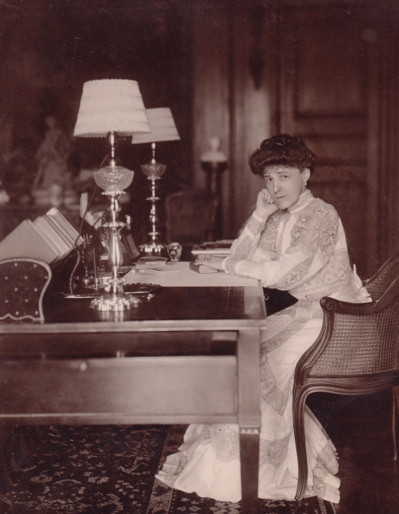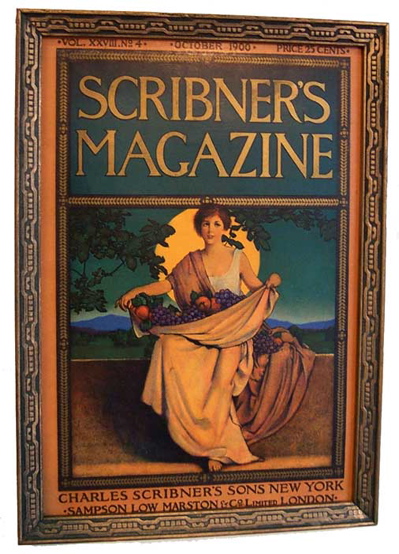Edith Wharton in The Mount library 1905.
Excerpt from Edith Wharton’s “Copy”: A Dialogue, Scribner’s Magazine 27 (June 1900):
VENTNOR. But the time comes when one sends for the china-mender, and has the bits riveted together, and turns the cracked side to the wall —
MRS. DALE. And denies that the article was ever damaged?
VENTNOR. Eh? Well, the great thing, you see, is to keep one’s self out of reach of the housemaid’s brush. (A pause.) If you’re married you can’t — always. (Smiling.) Don’t you hate to be taken down and dusted?


A bit off topic, but have you ever read F. Scott Fitzgerald’s remarks comparing himself to a cracked plate after his breakdown?
“In a previous article this writer told about his realization that what he had before him was not the dish that he had ordered for his forties. In fact — since he and the dish were one, he described himself as a cracked plate, the kind that one wonders whether it is worth preserving. Your editor thought that the article suggested too many aspects without regarding them closely, and probably many readers felt the same way — and there are always those to whom all self-revelation is contemptible, unless it ends with a noble thanks to the gods for the Unconquerable Soul.
But I had been thanking the gods too long, and thanking them for nothing. I wanted to put a lament in my record, without even the background of the Euganean Hills to give it color. There weren’t any Euganean Hills that I could see.
Sometimes, though, the cracked plate has to be retained in the pantry, has to be kept in service as a household necessity. It can never again be warmed on the stove nor shuffled with the other plates in the dishpan; it will not be brought out for company, but it will do to hold crackers late at night or to go into the icebox under leftovers…”
Read more: http://www.esquire.com/features/the-crack-up-2#ixzz1IPt9R8hb